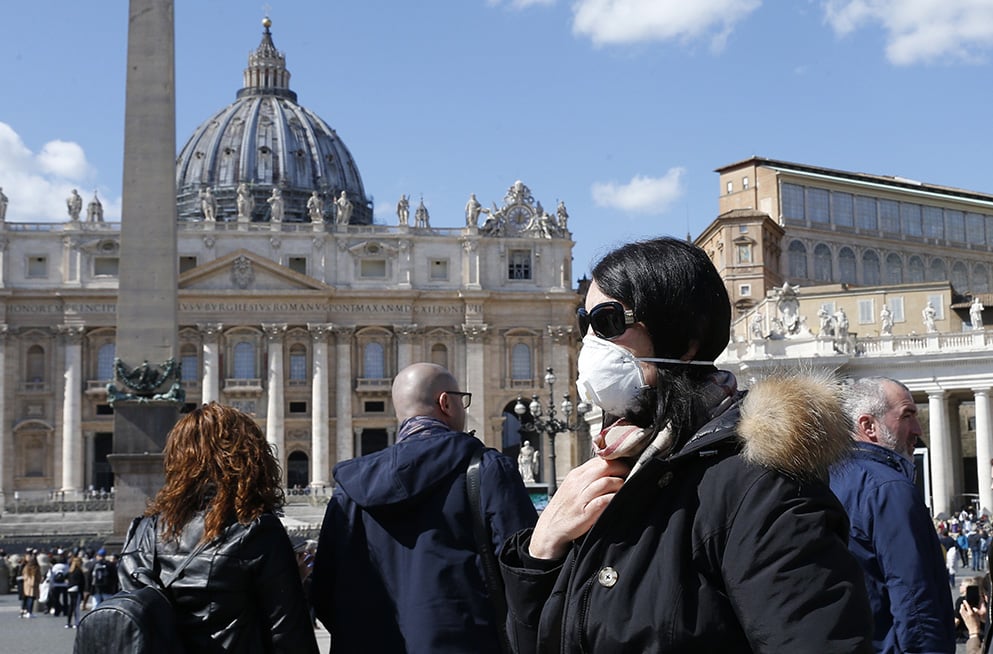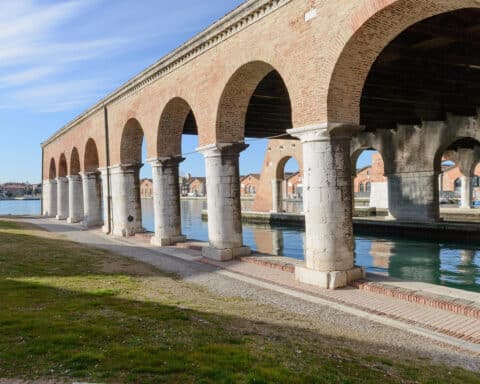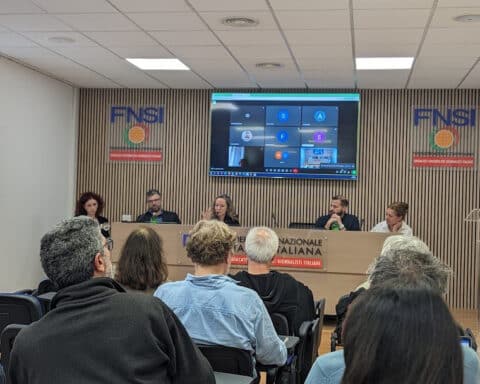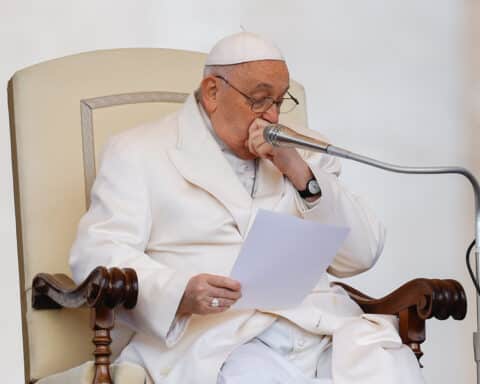The Rome vicariate on Sunday announced that all Masses with the faithful are suspended until at least April 3. The reason: coronavirus.
The Church’s decision was in keeping with a government decree that included a suspension of “all civil and religious ceremonies” in Italy until April 3. The purpose of the decree was to slow the diffusion of coronavirus, which spreads by person-to-person contact. The government decree was designed, in other words, to discourage large gatherings.
A statement from the communications office of the Rome diocese confirmed to Our Sunday Visitor that Masses can be celebrated without the faithful. “In particular,” the statement read, “the Cardinal Vicar, Angelo De Donatis, will celebrate Mass on March 11 at 8 p.m. [Rome time], and the celebration will be broadcast live on TV … and via livestream on the Rome diocese’s Facebook page.”
It remains to be seen how many of the altars in the side chapels of Rome’s churches will be used for Masses during hours churches are open to the faithful, as well as how rigorously the prohibition will be enforced. It is not unknown in Rome to find some wiggle room between the written rule and its application.
Reactions in Rome
Italy has been hit particularly hard by the virus, the outbreak of which authorities say began in Wuhan, China, late last year and has spread throughout the world. The virus presents with flu-like symptoms and usually runs its course without major incident. In older patients and in those with underlying health issues, however, coronavirus can cause more significant problems.
The death toll from confirmed coronavirus cases in Italy as of Monday stood at 366, with more than 1,300 new cases confirmed over the weekend. Italy’s northern region of Lombardy is hardest hit. Lombardy has been declared a “red zone” and is essentially on lockdown.
Schools throughout Italy are closed until March 15, though there are indications the closure will continue into April. Cinemas and other venues including museums, concert halls and theatres are closed as of Sunday and shall remain closed until at least April 3. Public manifestations — from block parties to political rallies — are likewise suspended.
In Rome, street traffic has been light. The tourism industry has been badly affected, as have businesses that depend on tourism. In a weekend message to citizens, Rome’s mayor, Virginia Raggi, said, “I want to remind you that there are some categories more vexed [by the crisis, than others]: I refer to the area of tourism — hoteliers, guides.” Raggi went on to say, “They are suffering a crisis without precedent,” and promised, “together, we shall come to understand what are most urgent steps to take.”
Plans for the Vatican
The Vatican has at least one confirmed case of coronavirus.
Outpatient services at the Vatican’s health center were suspended last week after one person who had been visiting the center tested positive for coronavirus. The urgent care center — located in the same building as the outpatient care facility, but on a different floor — was quickly sanitized and reopened.
A subsequent statement from the Press Office of the Holy See explained that the patient who tested positive had been visiting the outpatient facility for routine tests ahead of being hired into a Vatican position. Such medical exams are a matter of course in European countries, where workers are hired essentially on permanent contracts. The statement from the press office on Saturday also specified that five people had been in contact with the coronavirus-positive patient, and that all five are in precautionary quarantine.
Unconfirmed reports in Italian dailies have claimed certain offices of the Secretariat of State were subject to sanitation protocols.
Meanwhile, measures inside Vatican offices have gone from standard reminders to practice careful hygiene, to the introduction of hand-sanitizing stations, to warnings against congregating in small spaces and around coffee machines, to orders to use elevators not at all or one at a time, to news around noon Monday that preparations are being made for some staff, at least, to begin working remotely.
The Vatican also announced the closure of its museums and the cancellation of events, as well as changes to the way the Sunday Angelus and weekly general audience are to be celebrated. Pope Francis, as he did this past Sunday, will pray the Angelus and lead the general audience from the library of the Apostolic Palace, rather than from the window of the papal apartments in the Apostolic Palace or from the Paul VI Hall, where the general audience is usually held during winter months.
The Angelus and general audience will be broadcast via livestream on Vatican Media, and also to the large screens in St. Peter’s Square. How the broadcast in the square is supposed to deter large gatherings is unclear. Pope Francis himself was rather less than perfectly content with the arrangement on Sunday.
“It’s a bit strange,” Pope Francis quipped in his remarks ahead of the traditional noonday prayer, “this Angelus today, with the pope ‘caged’ in the library.” Nevertheless, he said, “I see you [out there], and I am near to you.” After praying the Angelus in the library, Francis went to the window and greeted the faithful — reduced in number — who were in the square.
Masses suspended
Taking a more prosaic view of the circumstances, it is impossible not to hear in Pope Francis’ wry remark echoes of the time when popes were “prisoners in the Vatican.”
Then, one considers that, for the first time in centuries — perhaps since the Holy Apostles, Peter and Paul, first carried the Gospel of Christ to these shores — Mass will not be offered for the faithful. Sure, it is highly unlikely that either sacristans or policemen will be chasing people out of churches every time a priest goes to an altar in a side chapel to say Mass, but the business is disconcerting.
It is likewise important to recall that the Mass is by its very nature a public and official act of divine worship — indeed, and an act of the whole Church — each and every time it is offered, regardless of the physical presence of the faithful.
All that is likely to be at best cold comfort to people who rely on the consolation only the sacraments of the Church can give, especially in times of great uncertainty. “May this season of Lent aid us,” prayed Rome’s Cardinal Vicar, Angelo De Donatis, in the final line of his circular letter publishing the new dispositions, “in living this great trial evangelically.”
“I bless you,” Cardinal De Donatis wrote, “entrusting you all to the Madonna di Divino Amore,” Our Lady of Divine Love, special patroness of Rome and the Roman people.
Christopher Altieri writes from Rome.





